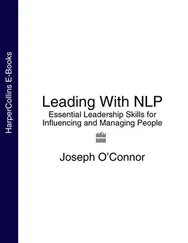John Gray - Children Are from Heaven - Positive Parenting Skills for Raising Cooperative, Confident, and Compassionate Children
Здесь есть возможность читать онлайн «John Gray - Children Are from Heaven - Positive Parenting Skills for Raising Cooperative, Confident, and Compassionate Children» весь текст электронной книги совершенно бесплатно (целиком полную версию без сокращений). В некоторых случаях можно слушать аудио, скачать через торрент в формате fb2 и присутствует краткое содержание. Год выпуска: 1999, ISBN: 1999, Издательство: HarperCollins e-books, Жанр: psy_childs, sci_pedagogy, Психология, на английском языке. Описание произведения, (предисловие) а так же отзывы посетителей доступны на портале библиотеки ЛибКат.
- Название:Children Are from Heaven: Positive Parenting Skills for Raising Cooperative, Confident, and Compassionate Children
- Автор:
- Издательство:HarperCollins e-books
- Жанр:
- Год:1999
- ISBN:978-0-06-133886-1
- Рейтинг книги:4 / 5. Голосов: 1
-
Избранное:Добавить в избранное
- Отзывы:
-
Ваша оценка:
- 80
- 1
- 2
- 3
- 4
- 5
Children Are from Heaven: Positive Parenting Skills for Raising Cooperative, Confident, and Compassionate Children: краткое содержание, описание и аннотация
Предлагаем к чтению аннотацию, описание, краткое содержание или предисловие (зависит от того, что написал сам автор книги «Children Are from Heaven: Positive Parenting Skills for Raising Cooperative, Confident, and Compassionate Children»). Если вы не нашли необходимую информацию о книге — напишите в комментариях, мы постараемся отыскать её.
Children Are from Heaven: Positive Parenting Skills for Raising Cooperative, Confident, and Compassionate Children — читать онлайн бесплатно полную книгу (весь текст) целиком
Ниже представлен текст книги, разбитый по страницам. Система сохранения места последней прочитанной страницы, позволяет с удобством читать онлайн бесплатно книгу «Children Are from Heaven: Positive Parenting Skills for Raising Cooperative, Confident, and Compassionate Children», без необходимости каждый раз заново искать на чём Вы остановились. Поставьте закладку, и сможете в любой момент перейти на страницу, на которой закончили чтение.
Интервал:
Закладка:
When a child is upset, there are always a variety of feelings inside. By pointing out one feeling a child may be having, he will quickly move on to another by saying, “No I’m not angry; I am sad.” Although it may feel as if he is not listening to you, try to remember that this is the time when he needs you to listen to him. When a child’s feelings shift and move on, it is a good thing.
When children resist, try to remember that
this is the time when they need you to listen
to them.
With a greater awareness of their different feelings, children can more quickly let go of them. If a child rejects your empathy or corrects your statement with a comment like, “That’s not how I feel . . . ,” make sure you don’t get into an argument. Just accept the resistance and keep listening. As the child continues to talk about his or her feelings, you have succeeded in helping.
If a child has not had ample opportunities to express feelings in the recent past, then empathizing with current feelings may open up a whole box of feelings. All the things that have bothered the child over the last several months or even years may begin to come up. This is good. Let it happen.
Just listen. Once it is out, the child will soon feel better.
Parents often make the mistake of trying to cut children off by pointing out that they are not correct or they are getting off the subject. That does not need to be said. Instead, just let them talk, and eventually they will be able to forget the past and appreciate you for listening.
WHEN PARENTS EXPRESS NEGATIVE EMOTIONS
Negative emotions tend to stimulate emotional reactions in others. When someone is sad, we feel sad. When someone is angry with us, we often feel anger in return. If someone is really scared, we may suddenly become unsettled or worried. If we are already upset, then another person’s emotions will stimulate our own feelings.
This helps explain why it can be so difficult to listen to a child cry or why being empathetic is easy sometimes but difficult at other times. If you have had a bad day and feel unsettled emotionally, listening to your children may become more difficult. All it takes is for your child to get upset, and suddenly your unresolved feelings come up in reaction to your child.
For example, if you are already frustrated because there seems to be too much to do and not enough time, you will have a greater tendency to overreact to your children. If your child is upset and frustrated with her homework and you are trying to help her, it will trigger your own frustrated feelings. Suddenly you’ll find yourself lashing out in a frustrated manner with your child. What started out as a loving gesture of help turns into a painful argument.
When parents react to their children’s negative emotions with more negative emotion, it doesn’t make children feel safe to express negative emotion. When parents express negative emotion, they are bigger, louder, and more powerful.
Strong adult emotions intimidate children into not expressing negative emotions. Eventually, children become numb to their feelings when it is not safe to express them.
When they express negative emotions,
parents are bigger, louder, and more
powerful and intimidate children.
Some mothers regain control of their children by letting out a loud, high-pitched, emotionally charged scream. Suddenly, their children behave. They suddenly behave because it is suddenly not safe to feel negative emotions, and, the child becomes obedient out of fear. While this method works in the short run, it numbs children to their inner feelings and suppresses their inner willpower.
Strong adult emotions make it unsafe
for children to feel.
Fathers establish control and dominance by yelling in a mean, angry tone. Suddenly their children behave immediately. Again, the children behave because it is not safe to express negative emotions. They become temporarily obedient out of fear. Children often suppress anger, because their parents get angry in return. While this kind of intimidating control used to work, it doesn’t work today. Children raised with this kind of intimidation either become rebellious later and resist cooperation or they become submissive and lack direction.
If we are to help our children manage their feelings, we must also manage our own feelings. To overcome our tendency as parents to expel our unresolved feelings on our children, we need to take time for ourselves to cope with stress and process unresolved emotional issues. Unless we take time for ourselves to cope with stress, we block our children from learning to manage their feelings.
To help our children manage their feelings,
we must also manage our own feelings.
Parents cannot patiently listen to children express resistant feelings of anger, sadness, and fear if they are holding in unresolved feelings of anger, disappointment, frustration, worry, or fear. If parents are resisting dealing with feelings within themselves, then they will automatically resist dealing with their children’s negative feelings.
Children cannot get the empathy they need when a parent is resisting what he or she hears. When children get the message that their emotions and needs for understanding and affection are an inconvenience, they will begin to suppress their feelings and disconnect from their true self and all the gifts that come from being authentic.
Until the parents deal with their own feelings, they are less effective in helping their children to manage feelings.
Yet, if they do take time to cope with stress and nurture their own adult needs for conversation, romance, and independence, they are able to come back and give so much more to their children. When parents take care of their own needs first, then they are most capable of putting into use the five skills of positive parenting.
THE MISTAKE OF SHARING FEELINGS
In the 1970s, adults started becoming aware of the importance of getting in touch with feelings. Just as adults needed to be in touch, we recognized that our children needed to learn about feelings as well. In an attempt to teach children how to get in touch with feelings, “enlightened” parents started sharing feelings with their children. Though the goal was correct, the process was not so effective.
Feelings need to be shared with peers, and children are not their parents’ peers. When one shares a negative emotion, there is an underlying need to be heard. The listener then responds with empathy, compassion, and assistance.
The problem with sharing negative emotions with children is that they cannot respond without feeling overly responsible for the parent. It is fine for children to share feelings with each other or with their parents, but it is not okay for parents to share negative emotions with kids.
Children are hardwired to please their parents. If parents share negative emotions, then their child will feel responsible for comforting the parent. In a very real sense, the child begins to feel responsible to care for the parent. The child, who is the one who needs to be cared for, takes the responsibility to care for the parent. This reversal of roles is very unhealthy for the child. Girls will tend to lose touch with their own feelings and needs and care more for the parent.
Boys will tend to reject this responsibility and stop listening or caring.
It is very unhealthy for children to feel
responsible for their parents’ feelings.
When a parent is upset after a fight and then gets upset with their children, there is no way the children can understand they are not responsible for the parents’ feelings. If the mother goes on to share her problems with her spouse, the children will feel even more responsible to solve the problem. It is hard enough for married adults to hear each other without feeling blamed or responsible. There is no way children can hear parents’ negative emotions without taking on too much responsibility. Ultimately, this increased awareness of their parents’ feelings will numb them to their own. As teenagers, they will eventually pull away and stop talking to their parents.
Читать дальшеИнтервал:
Закладка:
Похожие книги на «Children Are from Heaven: Positive Parenting Skills for Raising Cooperative, Confident, and Compassionate Children»
Представляем Вашему вниманию похожие книги на «Children Are from Heaven: Positive Parenting Skills for Raising Cooperative, Confident, and Compassionate Children» списком для выбора. Мы отобрали схожую по названию и смыслу литературу в надежде предоставить читателям больше вариантов отыскать новые, интересные, ещё непрочитанные произведения.
Обсуждение, отзывы о книге «Children Are from Heaven: Positive Parenting Skills for Raising Cooperative, Confident, and Compassionate Children» и просто собственные мнения читателей. Оставьте ваши комментарии, напишите, что Вы думаете о произведении, его смысле или главных героях. Укажите что конкретно понравилось, а что нет, и почему Вы так считаете.












